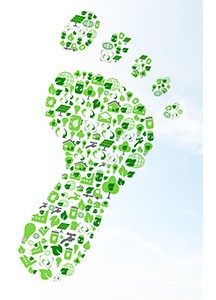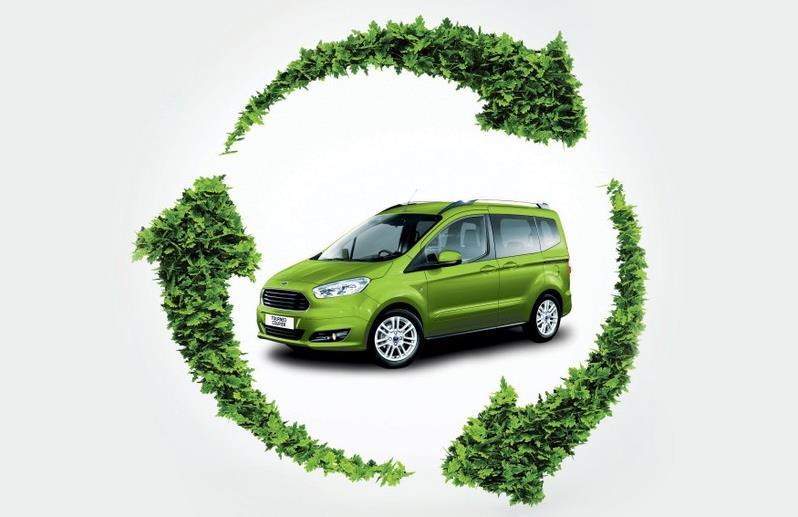Society And Environment
Corporate Social Responsibility
Dreams Need Information
While focusing on equal opportunities, we launched the "Dreams Need Information" project in cooperation with Young Guru Academy and Twin in order to present our strenght in R&D and innovation to the future generations.
We spread the approach of Open Innovation to young people and children via "Dream Need Information" and pioneer the social innovation by reflecting our works that we perform in our business segment to our social responsibility projects that we carry out with an approach of sustainability in order to help Turkey being a country producing advanced technologies and spreading these around the globe. One of the most distinctive features of this project which is the pioneer of the Social Responsibility 4.0 model, is the mobilization of Ford Otosan's technological strengths with a vision that will benefit the society.
In the first phase of the “Dreams Need Knowledge” project, which aims to provide problem solving skills to children who do not have access to new technologies by using technologies such as sensors, coding and artificial intelligence; we will send programmable vehicle sets with basic sensor technology and autonomous driving feature. We aim to raise awareness about the things they can do with technology by letting children to solve the tests presented in their tool sets or creating their own experiments.
The "Artificial Intelligence Supported Autonomous Toolkit" that we are going to share with the children in the second phase of the project shows our F-Vision approach more concretely. The set includes basic image recognition algorithms, artificial intelligence model trials with block coding, training and installation of the new artificial intelligence models, artificial intelligence usage scenarios and new problems. Within the scope of the project, autonomous and artificial intelligence tool sets will be delivered to 500 schools in 3 years.
Environmental Management

We see the environment as a valuable gift which must be protected to safeguard the benefits of future generations. We see environmentally friendly production methods as just as important a part of our sustainability policies as making products which themselves have a minimal impact on the environment. In this regard, issues such as water, responsible material consumption, waste management and biodiversity, besides the matters of energy, greenhouse gas and airborne emissions, constitute the areas where we aim to improve environmentally friendly and efficient production, thereby reducing our negative impact on the planet.
The basis of our commitment to the environment is enshrined in the Ford Otosan Environment and Energy Policy, which harmonises the Koç Holding Environmental and Energy Policy with the conditions set out in the Ford Motor Company Environmental Policy Letter and international standards. Within this scope, we expect our employees, suppliers, contractors, and all relevant business partners, to act in accordance with the Ford Otosan Environmental and Energy Policy, and aim to improve the environmental managing talents of our employees and partners through training programmes and activities aimed at increasing environmental awareness throughout society.
Ford Otosan has worked with external consultants on the possible financial risks of internal carbon pricing risk. In 2024, the carbon price was set at 65 Euro/ton CO2e, based on data from International Energy Agency (IEA).
Energy and Climate

Aside from the protecting the physical environment, climate change, which has the potential to create massive economic and social issues, is one of the world’s most significant concerns. We see an increase in greenhouse gas emissions, and the world’s increasing energy demands, as a potential cause for greater problems associated with climate change.
But the fight against climate change is not just important in order to maintain our future quality of life, or to lower the risks to the environment, we also view it is also as a means to reduce our operational outgoings, and increase our competitive edge in a future in which reduced consumption is an asset. The Ford Motor Company and Koç Group’s Climate Change Strategy provides our road map in this endeavour. The most important chapter in this publication is that which focuses on increasing energy efficiency and lowering carbon emissions as a means, on one hand, to protect the environment, and on the other, to be more competitive. This is why we constantly promote projects aimed at increasing efficiency in every level of our activities.
We also work hard to limit the amount of emissions, such as greenhouse gases, which are created as a cause of our production processes. At every one of our production plants we record the air emission values at legally proscribed periods and keep the limiting value under control.
Green Design

We make strenuous efforts to ensure our products and production methods have a minimal impact on the environment, even from the design phase. We evaluate all our products in terms of energy usage and environmental impact within the scope of the Ford Otosan New Project Environmental and Energy Review Procedure. We aim to ensure the protection of the natural resources, ecology, biodiversity, climate, air and water quality, soil and forests of where we operate, and reduce the waste of energy, water, and other materials. If we find unassailable risks posed to any of the above, we immediately set about for an alternative design, and undertake this review even during the in the admission and start-up phases.
Ford Otosan aims to renew products, extend their economic life, and protect resources and energy with the method of “remanufacturing”. The associated green house gas (GHG) emissions of spare parts used in vehicles can be significantly reduced if remanufacturing applications are preferred instead of scratch production methods. In addition, remanufacturing helps to reduce the waste flow that may occur when it’s compared to producing new products from related raw materials by reusing automotive components and causes less pollution. Thus, within the scope of the roadmap drawn by Ford OTOSAN to reach net zero, suppliers and manufacturers are helped to contribute to the circular economy and to deliver environmentally friendly products with lower costs to the user. With the remanufacturing method, based on Ford OTOSAN passenger and commercial vehicles, the approximate emission gain values of 21 different parts were calculated over the relevant part in annual volume. At Ford OTOSAN, approximately 300 tons of emission savings were achieved for 6088 parts in annual volume. In addition, ₺435,902,466.00 profit was achieved in 2024 with the remanufacturing method.
Ford Otosan uses VTP procedure to measure and report comparison of real-world on-road measured CO2 emissions and VECTO declarations for heavy duty vehicles. COP procedures are applied to monitor and report comparison of CO2 emissions and declarations for light-duty and passenger car vehicles. In addition to VTP (Verification Testing Procedure) and COP (Conformity of Production) processes, real-world fuel consumption of all F-MAX long haul truck vehicles with connected vehicle network system are measured and compared with VECTO (Vehicle Energy Consumption Calculation Tool) declarations.
Ford Otosan fulfills end-of-life vehicle responsibility by monitoring the annual end-of-life vehicle declaration report and evaluating the reuse, recycling, energy recovery, and disposal rates of waste derived from end-of-life vehicles. According to the 2024 report, twenty-one Ford vehicles were deregistered and properly disposed of, with a total reuse and recovery rate of 99.39%. In 2023, eleven Ford vehicles were deregistered and properly disposed of, with a total reuse and recovery rate of 97.45%. In 2022, four Ford vehicles were deregistered and properly disposed of, with a total reuse and recovery rate of 97.54%; in 2021, four vehicles were recorded with a recovery rate of 98.01%; in 2020 25 vehicles with a recovery rate of 97.13%, in 2019, 40 vehicles with a recovery rate of 96.95%, and in 2018, 567 vehicles with a recovery rate of 83.92% were reported.
Ford Otosan is committed to promoting the responsible manufacturing, handling and use of our products. That’s why we support the underlying goals of REACH, a European Union regulation that concerns the Registration, Evaluation, Authorisation & restriction of Chemicals.

